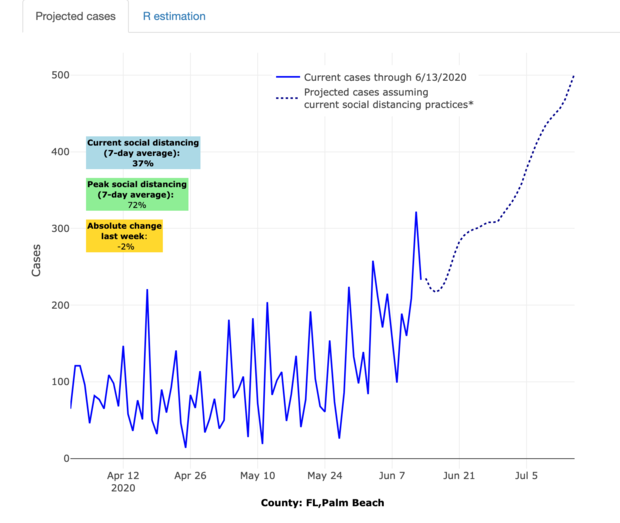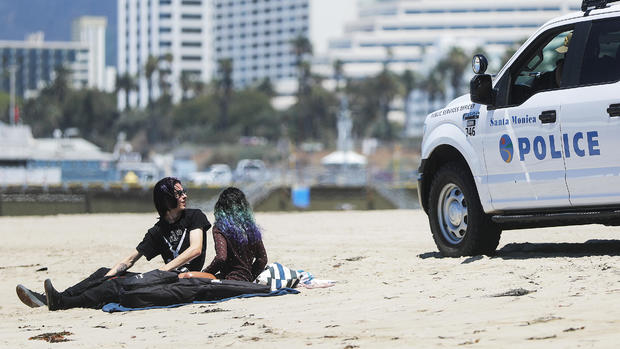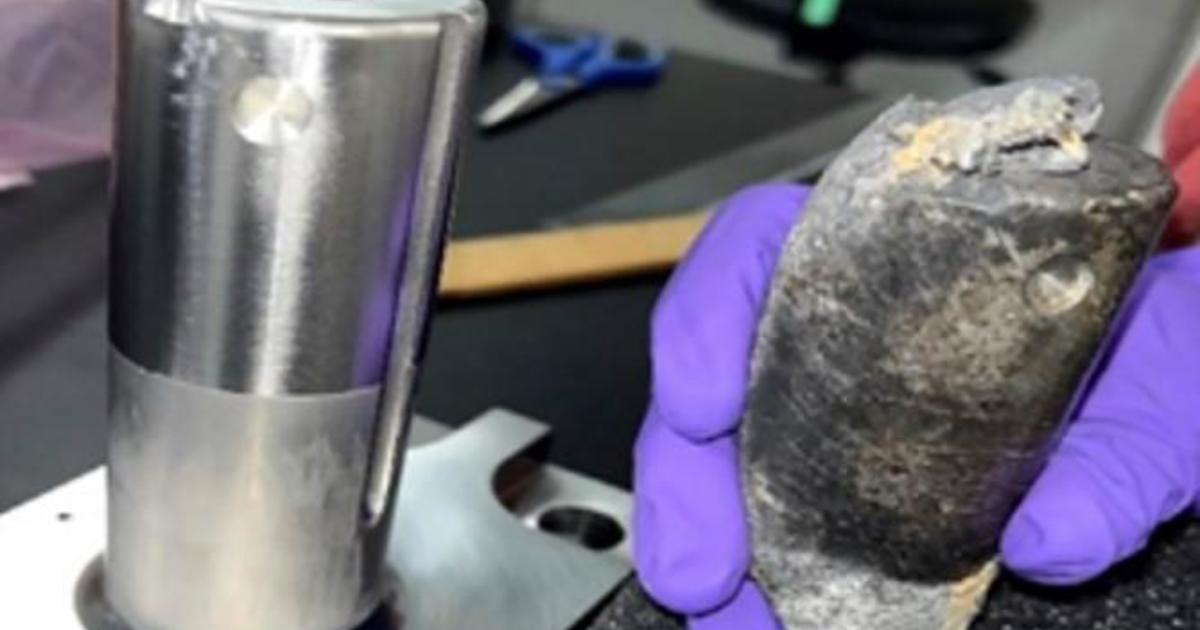Florida could be the next epicenter of the coronavirus pandemic, report warns
Florida is continuing to move forward with its reopening plans, despite having a week of record-breaking spikes in coronavirus cases. And now, one group of experts is warning that the state "has all the makings of the next large epicenter."
On Wednesday, scientists at Children's Hospital of Philadelphia and the University of Pennsylvania released a report that showcases what the future for Florida — and other states with recent spikes in cases — could be without more stringent restrictions.
"The most concerning areas for additional widespread community transmission continue to be in Texas, Arizona, the Carolinas and, once again, Florida," the report said. "In fact, Florida has all the makings of the next large epicenter…the risk there is the worst it has ever been in our projections."
Florida had its biggest spike yet in new coronavirus cases on Thursday, with 3,208 new cases in just 24 hours, according to CBS Miami. The state now has nearly 86,000 total cases of the coronavirus, according to the state Department of Health, and more than 3,000 people have died.
The report predicts that in Palm Beach County, which has the third highest number of coronavirus cases in the state, the number of cases will rapidly increase through July 5 if social distancing practices remain the same. On Thursday, the county's ICU beds were 82% occupied, according to CBS Miami.
A similar outcome is expected for Miami-Dade, which currently leads the state with 23,854 cases.
Data for the report is based on city characteristics, as well as temperature, humidity and social distancing strategies, according to the study's abstract.
Dr. David Rubin, director of PolicyLab at CHOP and a professor of pediatrics at the University of Pennsylvania's Perelman School of Medicine, said in a press release that their past models have been accurate, and that communities "may be ready to reopen if they take a cautious and slow approach."
"However, we continue to caution that reducing the likelihood of additional outbreaks will require individuals and business owners to be vigilant with personal protection, wearing masks and practicing proper hygiene, and instituting strong workplace safety measures," Rubin said. "Unfortunately, we are already seeing some areas move too quickly and without enough vigilance."
At a press conference on Tuesday, Florida Governor Ron DeSantis said the spike in cases is the result of increased testing.
"You do now have widespread testing of asymptomatic people," he said, adding that the state does not plan on changing its reopening plans.
All of Florida, except for Miami-Dade, Broward, and Palm Beach, is currently in the second phase of reopening. Bars and restaurants can operate at 50% capacity, and gyms, retail stores, museums, libraries and professional sports venues can operate at full capacity.
"The restaurants have been doing this for, what have they been doing it for — for six weeks? I mean, the idea that that all of a sudden is the reason, I'm not sure that that's the case," DeSantis said. "So no, we're not shutting down."
But Dr. Mary Jo Trepka, an infectious disease epidemiologist at Florida International University, said the reopenings are contributing to the spike in cases. The future of the coronavirus in Florida, Trepka said, "all depends on what people do." Trepka, a former director at the Miami-Dade Health Department, told CBS Miami that people need to practice social distancing and wear face masks when they are in public.
The authors of Wednesday's report echoed those recommendations, cautioning that "summer weather alone cannot extinguish an outbreak."
"High temperatures and humidity help to reduce coronavirus spread on the margins, but the greatest differentiator is our distancing and masking and hand hygiene, and the ability to protect high-risk locations like meatpacking plants, prisons and nursing homes," the report said.






